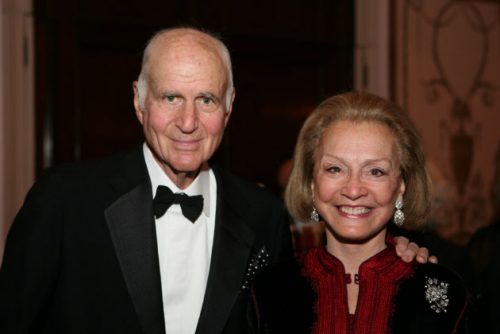An interesting example of how attitudes or opinions from civil-society can easily bleed into a company’s bottom line comes to us in the form of Uber, recently caught up in a PR storm entirely of its own making. The app-based ride-sharing service is a mainstay of modern urban life, and is currently valued at around $50 billion (some experts have challenged the company’s valuation in the past, noting problems with revenue streams and rising costs of business).
Now, however—quite apart from issues regarding investor skepticism or competition from Apple and Google—Uber faces a backlash against what is widely perceived to be an unhealthy and even unsafe corporate culture. In February of 2017, an engineer named Susan Fowler penned a blog post describing her experience working for the company; Fowler recounts being sexually propositioned by her (married) male supervisor almost immediately after joining his chain of command and how, when she brought this issue up to the Human Resources team, they told her they “wouldn’t feel comfortable” reprimanding the supervisor because of his high performance record.
Just a few days later, Uber’s CEO Travis Kalanick was caught on camera berating a company driver. Meanwhile Fowler’s blog set off a firestorm, leading to an in-depth internal investigation of the company’s personnel policies, led by former Attorney General Eric Holder. The company, in an attempt to soften its image, invited Arianna Huffington onto its board of directors (Huffington is a prominent campaigner for reforming the male-dominated corporate culture). Then during an all-hands board call Huffington was recorded being interrupted by a male colleague making a sexist joke:
HUFFINGTON: “There’s a lot of data that shows when there’s one woman on the board, it’s much more likely that there will be a second woman on the board…”
[Uber board member David] BONDERMAN: “Actually what it shows is it’s much likely to be more talking.”
The commentariat howled. Maureen Dowd took to the editorial pages of the New York Times to compare Kalanick to Donald Trump as men both dangerously “unaware of their [own] self-destructive tendencies.” Also in the Times, columnist David Leonhardt announced it was time for right-thinking liberals to put their money where their mouths were and finally abandon Uber, choosing another ridesharing option like Lyft instead. With Bonderman on a compulsory leave of absence and yesterday’s announcement that Kalanick was forced to resign, there’s a chance Uber may yet still reform itself; then again, if enough people follow Leonhardt’s advice and vote with their feet, it may be a little too late.
There’s a lesson here about the cycles of creative destruction that define our new tech culture. Uber capitalized on a brilliant idea—connecting people willing to drive with people in need of rides—and managed to upset one of the most entrenched industries in America. But now that they’ve arrived, the same smash-it-up attitude that got them where they are becomes a glaring liability. Consumers in the interconnected market demand their companies fit into a nexus of values that roughly matches their own—and rightly so. As long as Uber wants to continue to cater to professional urban millennials, this will mean taking seriously the task of dismantling a sexist frat-boy culture within the company.
Meanwhile, out beyond the suburbs of major cities, in the rural or small-town communities passed over by ride-sharing companies, residents are helping themselves. A recent report in the Times describes so-called raiteras in the largely-Hispanic city of Huron, California: retired farm workers and other volunteers who drive people around town or into Fresno (fifty-two miles away!) for doctor’s appointments or errands. Raiteras work in exchange for gas money or a cheap lunch. Huron’s mayor is making moves to support these “indigenous Ubers” by hiring a dispatcher for the service and providing drivers with fuel-efficient electric cars.
Especially against the backdrop of Silicon Valley’s obnoxious antics, local initiatives like Huron’s seem a quiet witness to the power of community. Perhaps as Uber goes about reworking its internal culture, it can learn to take a hint.







1 thought on “As Uber seeks reform, it should learn to take a hint”